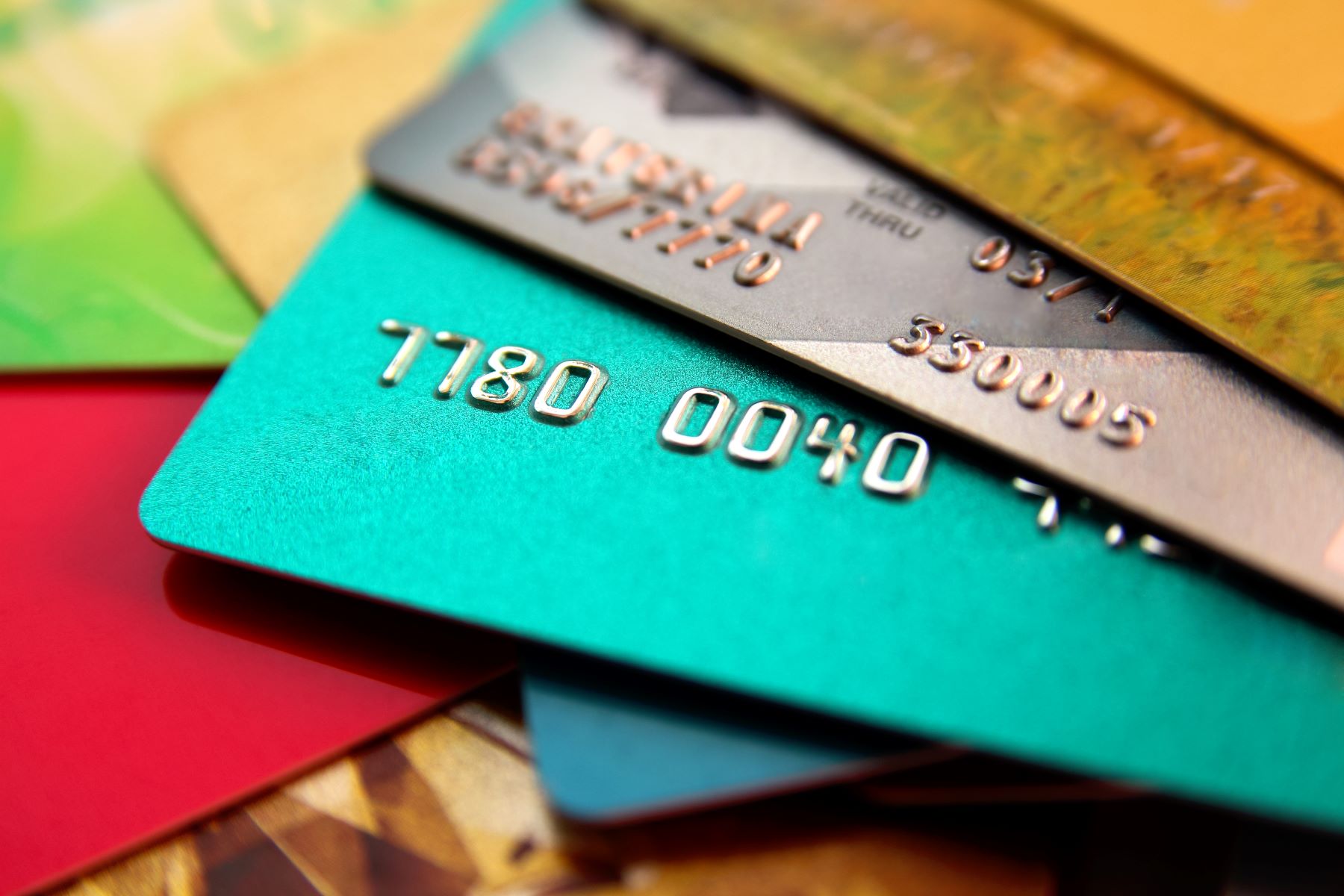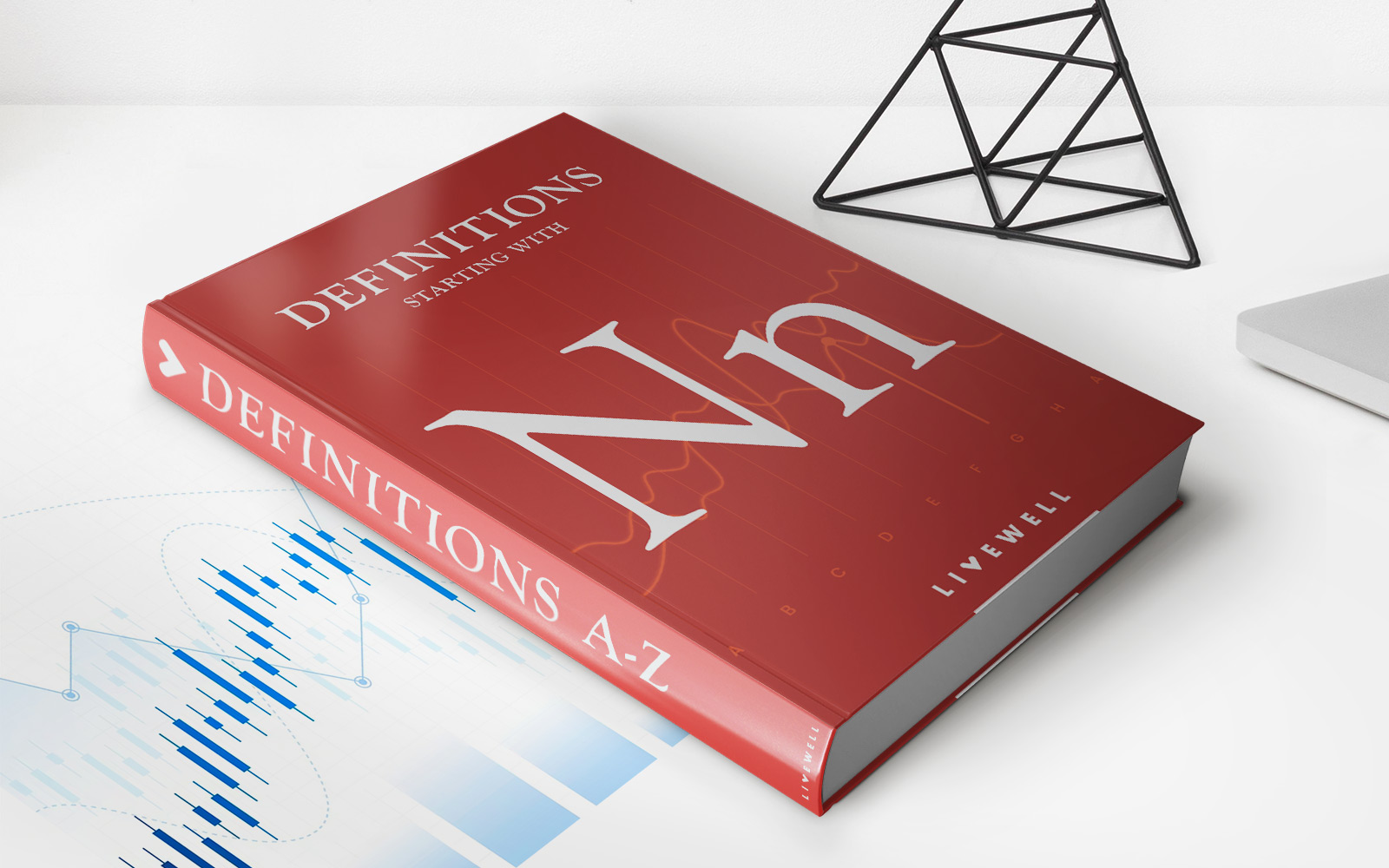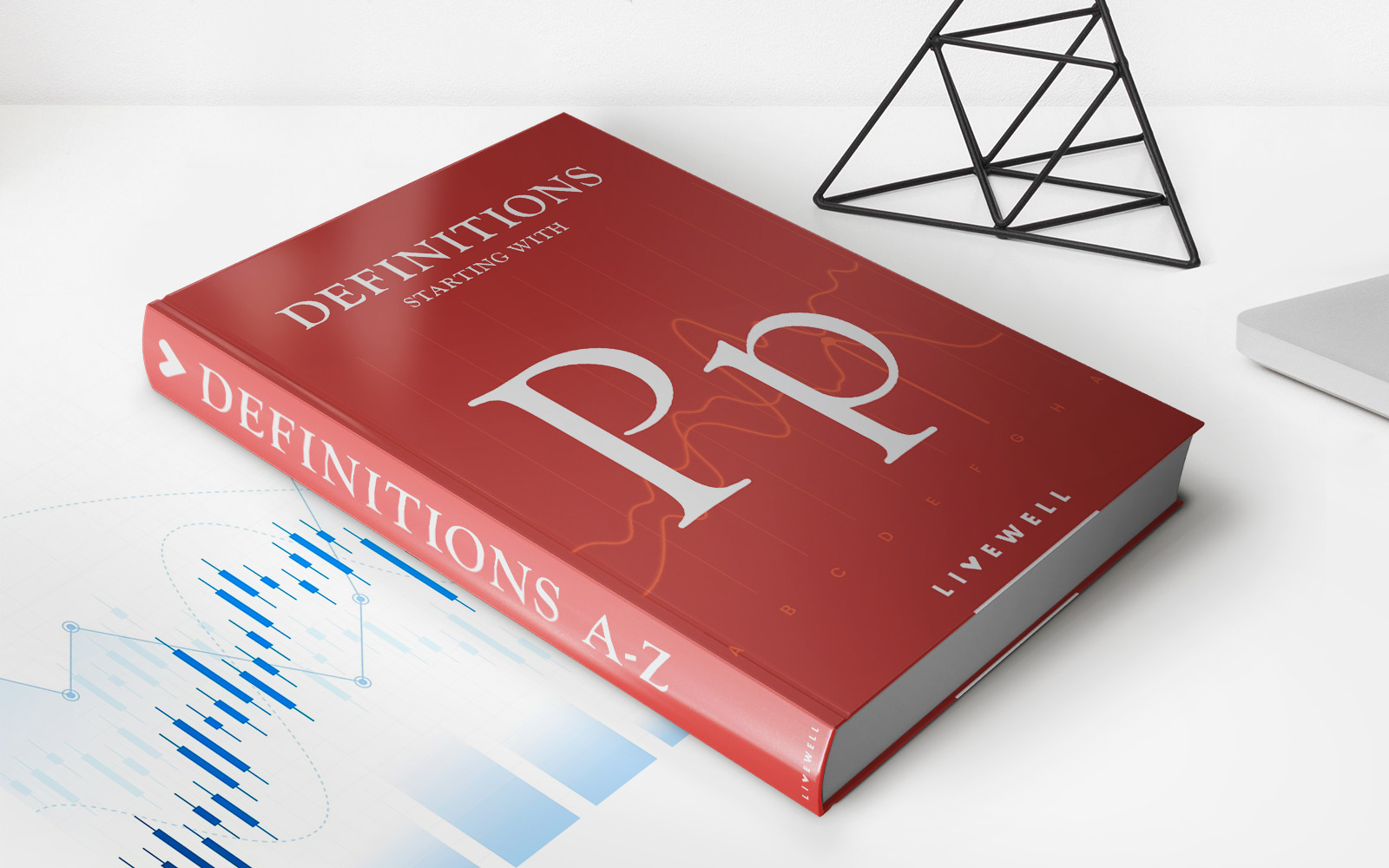

Finance
How To Get Out Of Credit Card Debt
Modified: December 29, 2023
Learn effective strategies and tips to manage your finances and eliminate credit card debt. Take control of your financial future and find freedom from debt today.
(Many of the links in this article redirect to a specific reviewed product. Your purchase of these products through affiliate links helps to generate commission for LiveWell, at no extra cost. Learn more)
Table of Contents
- Introduction
- Evaluate Your Current Debt Situation
- Create a Budget and Stick to It
- Reduce Expenses and Increase Income
- Prioritize Repayment Methods
- Negotiate with Creditors
- Consider Debt Consolidation
- Explore Credit Counseling Services
- Seek Professional Help If Needed
- Avoid Accumulating More Debt
- Stay Persistent and Focused
- Conclusion
Introduction
Dealing with credit card debt can be overwhelming and stressful. It’s easy to find yourself trapped in a cycle of high-interest payments, struggling to make minimum payments, and feeling like you’ll never be free from the burden. However, it’s important to remember that getting out of credit card debt is possible with the right strategies and determination.
In this article, we will discuss practical steps you can take to regain control of your finances and eliminate credit card debt. By implementing these strategies, you can reduce interest charges, pay off your debts faster, and ultimately achieve financial freedom.
Before diving into the details, it’s crucial to acknowledge that everyone’s financial situation is unique. The steps outlined here are general guidelines and may need to be adapted to suit your specific circumstances. It’s always wise to consult with a financial advisor or credit counselor to create a personalized plan that aligns with your goals and resources.
Remember, getting out of credit card debt requires commitment, discipline, and patience. It’s not a quick-fix solution, but a journey towards financial stability. So, let’s get started on your path to being debt-free!
Evaluate Your Current Debt Situation
The first step towards getting out of credit card debt is to evaluate your current financial situation. Take a comprehensive look at all your debts, including outstanding balances, interest rates, and minimum payment requirements. This will give you a clear understanding of the magnitude of your debt and help you prioritize your repayment strategy.
Start by creating a list of all your credit card debt. Include the name of the credit card, the outstanding balance, the interest rate, and the minimum monthly payment. This will serve as your debt inventory, allowing you to track your progress as you pay off your debts.
Once you have a complete picture of your credit card debt, assess your ability to pay off the debts based on your current income and expenses. Calculate your debt-to-income ratio, which is the percentage of your income that goes towards debt repayment. This will help you gauge how much you can allocate towards paying off your credit card debt each month.
Additionally, take note of any other outstanding debts you may have, such as personal loans or student loans. While the focus of this article is on credit card debt, it’s important to consider all your liabilities when evaluating your overall financial situation.
During this evaluation process, it’s also essential to review your spending habits and identify any patterns of unnecessary or impulsive spending. By recognizing and addressing these habits, you can prevent further accumulation of debt.
By thoroughly evaluating your current debt situation, you will have a realistic understanding of where you stand financially. This awareness will allow you to develop an effective plan to tackle your credit card debt and make the necessary adjustments to your spending habits.
Create a Budget and Stick to It
Creating a budget is a crucial step in managing your finances and getting out of credit card debt. A budget helps you track your income and expenses, giving you a clear picture of where your money is going and allowing you to make informed financial decisions.
Start by listing all your sources of income, including your salary, freelance work, or any additional sources of income. Next, categorize your expenses into fixed expenses, such as rent or mortgage payments, utilities, and insurance, and variable expenses, such as groceries, transportation costs, and entertainment.
Allocate a specific portion of your income towards debt repayment. Ideally, aim to pay more than the minimum monthly payment to accelerate the debt payoff process. Consider using the debt snowball or debt avalanche method to prioritize which debts to pay off first.
As you prepare your budget, look for areas where you can cut back on expenses. This may involve making sacrifices and temporarily reducing discretionary spending, such as eating out or shopping for non-essential items. Every dollar you save can be allocated towards debt repayment.
One helpful strategy is to automate your savings and debt repayment by setting up automatic transfers or payments. This ensures that you prioritize these financial goals and eliminates the temptation to spend the money elsewhere.
When creating a budget, it’s essential to be realistic and flexible. Leave room for unexpected expenses or emergencies that may arise. Review your budget regularly and make adjustments as needed to accommodate changes in income, expenses, or financial goals.
Sticking to your budget requires discipline and self-control. It may be challenging at first, but remember that by adhering to your budget, you are taking a significant step towards paying off your credit card debt and achieving financial freedom.
Reduce Expenses and Increase Income
Reducing expenses and increasing income are two powerful strategies to help you get out of credit card debt faster. By cutting costs and finding ways to bring in extra money, you can free up more funds to put towards your debt repayment.
1. Trim unnecessary expenses: Take a close look at your expenses and identify areas where you can make cuts. This may include dining out less frequently, canceling unused subscriptions, or finding alternative, cost-effective ways to meet your entertainment needs. Every dollar you save can be allocated towards your credit card debt.
2. Negotiate bills and interest rates: Contact your service providers, such as cable, internet, or insurance companies, and negotiate for lower rates or seek better deals. Additionally, consider contacting your credit card companies to inquire about reducing your interest rates. Lower interest rates can significantly reduce the total amount of interest you pay over time.
3. Downsize or find alternative housing: If your housing expenses are a significant portion of your budget, consider downsizing to a smaller space or exploring alternative housing options, such as renting out spare rooms or utilizing shared housing platforms. The savings generated from lower housing costs can be used to pay off your credit card debt.
4. Increase your income: Exploring ways to increase your income can provide a significant boost in your debt repayment journey. Consider taking on a part-time job, freelancing, or starting a side business to generate extra income. You can allocate this additional money towards paying off your credit card debt more quickly.
5. Sell unused items: Take inventory of your belongings and identify items you no longer need or use. Consider selling them online through platforms such as eBay or Facebook Marketplace. The money you generate from these sales can be applied directly to your credit card debt.
Remember, every little bit counts when it comes to reducing expenses and increasing income. Be creative and resourceful in finding ways to save and earn more money. The extra funds you generate will help accelerate your debt payoff journey and bring you closer to financial freedom.
Prioritize Repayment Methods
When it comes to paying off credit card debt, it’s important to prioritize your repayment methods to maximize your progress. Here are some strategies to consider:
- The Debt Snowball Method: This method focuses on paying off your smallest debts first while making minimum payments on your other debts. Once the smallest debt is paid off, you can roll the amount you were paying towards that debt into the next smallest debt. This approach provides a psychological boost and helps build momentum as you see debts being eliminated.
- The Debt Avalanche Method: With this method, you prioritize paying off debts with the highest interest rates first, while making minimum payments on the other debts. By targeting high-interest debts, you save money on interest in the long run. This method may take longer to see results compared to the debt snowball method, but it can save you more money in interest payments.
- Balance Transfers: If you have multiple credit card debts with high-interest rates, consider transferring the balances to a credit card with a lower or 0% introductory APR. This allows you to consolidate your debts into one account and potentially save on interest charges. However, be cautious of balance transfer fees and ensure you can pay off the transferred balance within the promotional period.
- Target High-Interest Debts: Regardless of the repayment method you choose, always prioritize the credit card debts with the highest interest rates. Focus your extra payments on these debts to save on interest charges over time.
Selecting the most suitable repayment method depends on your personal preferences, financial situation, and goals. It’s important to assess each method carefully and choose the one that aligns with your needs and motivates you to stay on track.
Remember, consistency is key. Stick to your chosen repayment method and make regular payments to make steady progress towards becoming debt-free. Celebrate each debt that you pay off, as each milestone brings you closer to financial freedom.
Negotiate with Creditors
If you’re struggling with credit card debt, don’t hesitate to reach out to your creditors and explore the possibility of negotiating better terms. Creditors may be willing to work with you to find a mutually beneficial solution. Here are some negotiation tactics to consider:
1. Contact your creditors: Begin by contacting your credit card companies directly. Explain your financial difficulties and express your willingness to repay the debt. In some cases, they may be open to lowering your interest rates, waiving late fees, or working out a modified payment plan.
2. Explain your circumstances: Be honest and transparent about your financial situation. If you’ve experienced a temporary setback such as job loss or a medical emergency, let your creditors know. They may be more understanding and willing to offer assistance.
3. Propose a payment plan: If you’re struggling to keep up with the minimum monthly payments, propose a realistic payment plan that fits within your budget. Show your creditors that you’re committed to repaying the debt by offering a specific payment amount and timeline.
4. Consider working with a credit counseling agency: Credit counseling agencies can help you negotiate with creditors and create a debt management plan. They will work on your behalf to facilitate lower interest rates and consolidate your debts into one monthly payment. However, be cautious when choosing a credit counseling agency and ensure they are reputable and accredited.
5. Get any agreements in writing: It’s essential to document any agreements or modifications made with your creditors. Request written confirmation of any changes to your payment plan or interest rates. This will protect you in case of any disputes or misunderstandings in the future.
Remember, not all creditors may be willing to negotiate, but it’s worth making the effort to reach out and explore your options. By negotiating with your creditors, you may be able to secure more favorable terms and make your debt more manageable.
Be persistent, patient, and maintain open lines of communication with your creditors throughout the negotiation process. Your willingness to take action and reach out can make a significant difference in your debt repayment journey.
Consider Debt Consolidation
If you have multiple credit card debts with high-interest rates, debt consolidation can be a viable option to simplify your payments and potentially save on interest charges. Debt consolidation involves combining all your debts into a single loan or credit card with a lower interest rate. Here are some considerations when exploring debt consolidation:
1. Personal Loan: One option is to take out a personal loan to pay off your credit card debts. Personal loans typically have lower interest rates compared to credit cards, which can help you save on interest charges. With a personal loan, you’ll have a fixed payment schedule and a clear timeline for debt repayment.
2. Balance Transfer Credit Card: Another option is to transfer your credit card balances to a single credit card with a lower or 0% introductory APR. This can provide temporary relief from high-interest charges and simplify your payments into a single monthly bill. However, be mindful of balance transfer fees and ensure you can pay off the transferred balance within the promotional period.
3. Home Equity Loan or Line of Credit: If you own a home and have built up equity, you may consider using a home equity loan or line of credit to consolidate your debts. These options typically offer lower interest rates, but they use your home as collateral. It’s crucial to carefully consider the risks involved and ensure you can afford the payments.
4. Debt Consolidation Loans: Specific financial institutions provide loans specifically for consolidating debts. These loans are designed to pay off your existing high-interest debts and consolidate them into a single loan. Debt consolidation loans often have lower interest rates and fixed repayment terms.
Before deciding on debt consolidation, it’s essential to assess your overall financial situation and evaluate the potential benefits and drawbacks. Consider factors such as interest rates, loan terms, fees, and your ability to make the required payments.
Debt consolidation can help simplify your payments, lower your interest rates, and potentially save you money. However, it’s important to remember that it’s not a solution to eliminate debt – it’s a tool to make debt more manageable. It’s crucial to address the underlying causes of your debt and commit to sound financial habits moving forward.
Consult with a financial advisor or credit counselor to determine if debt consolidation is the right option for you. They can provide personalized guidance based on your specific financial circumstances and help you make an informed decision.
Explore Credit Counseling Services
If you’re feeling overwhelmed with credit card debt or struggling to create a repayment plan on your own, seeking assistance from a credit counseling service can be beneficial. Credit counseling services can provide expert guidance, education, and resources to help you manage your debt. Here’s what you need to know about credit counseling:
What is credit counseling?
Credit counseling is a service provided by non-profit organizations that aim to help individuals overcome their debt and improve their financial situation. Credit counselors are trained professionals who work with you to assess your financial status, develop a tailored repayment plan, and provide you with practical advice and strategies to effectively manage your debts.
How can credit counseling services help?
1. Debt assessment: Credit counselors will evaluate your financial situation, including your income, expenses, and debts. They will help you understand the full extent of your debt and identify the most effective strategies for repayment.
2. Budget planning: Credit counselors can assist you in creating a realistic budget that allows you to meet your financial obligations while still having room for basic necessities and savings.
3. Debt management plan (DMP): If necessary, credit counselors can help negotiate with your creditors to develop a debt management plan. This plan consolidates your debts into a single monthly payment, typically at reduced interest rates, making it easier to manage your payments.
4. Financial education: Credit counseling services often offer educational resources and workshops to help you improve your financial literacy. They can provide you with valuable tools and knowledge to better understand credit card management, budgeting, and long-term financial planning.
5. Credit score improvement: Credit counselors can advise you on steps you can take to improve your credit score over time. They will provide strategies for responsible credit card use and guide you in rebuilding your credit.
Choosing a credit counseling service:
When selecting a credit counseling service, look for reputable non-profit organizations that are accredited by recognized associations such as the National Foundation for Credit Counseling (NFCC) or the Financial Counseling Association of America (FCAA). These organizations adhere to strict ethical standards and offer high-quality services.
It’s important to note that credit counseling is not a quick fix. It requires commitment and discipline to follow the guidance provided by counselors and implement their recommendations consistently.
Consulting with a credit counseling service can provide you with the support and expertise you need to effectively manage your credit card debt. They can offer guidance, resources, and practical strategies to help you achieve financial stability in the long run.
Seek Professional Help If Needed
If you find yourself overwhelmed by credit card debt and unable to make progress on your own, it may be time to seek professional help. Professional debt relief services and bankruptcy attorneys can provide guidance and support tailored to your specific situation. Here are some considerations when deciding to seek professional assistance:
1. Debt Settlement Companies: Debt settlement companies negotiate with your creditors on your behalf to settle your debts for less than the total amount owed. While this may sound appealing, it’s crucial to research and choose a reputable company. Be aware that debt settlement can have a negative impact on your credit score, and there may be fees involved.
2. Bankruptcy Attorneys: If your debt situation is severe and you’ve explored other options without success, consult with a bankruptcy attorney. They can evaluate your financial situation and guide you through the bankruptcy process, helping you determine if filing for bankruptcy is the best solution for your circumstances.
3. Financial Advisors: Working with a certified financial advisor can provide expert guidance and a comprehensive assessment of your financial situation. They can help you create a personalized plan to manage your debt, improve your credit, and establish a solid foundation for your financial future.
4. Non-profit Credit Counseling Agencies: Non-profit credit counseling agencies, mentioned earlier in this article, can also be an excellent resource for professional help. These agencies offer guidance, education, and debt management plans to help you regain control of your finances.
When seeking professional help, it’s crucial to research and select reputable individuals or organizations. Look for credentials, certifications, and reviews to ensure you’re working with trustworthy professionals who have your best interests at heart.
Remember, seeking professional help is not a sign of failure. It is a proactive step towards finding the best solution for your financial situation. These professionals have the knowledge and experience to navigate the complexities of debt and can provide the guidance you need to make informed decisions.
However, be cautious of scams or predatory practices in the debt relief industry. Avoid companies or individuals that make unrealistic promises, charge exorbitant fees upfront, or pressure you into making hasty decisions.
Ultimately, the decision to seek professional help should be based on your unique circumstances. Evaluate your options, weigh the pros and cons, and select the path that aligns with your financial goals and offers the most viable solution for your credit card debt.
Avoid Accumulating More Debt
While focusing on paying off your existing credit card debt, it’s essential to avoid accumulating more debt. Otherwise, you risk undoing all your hard work and finding yourself trapped in a never-ending cycle of debt. Here are some strategies to help you avoid accumulating more debt:
1. Evaluate your spending habits: Take a close look at your spending patterns and identify any areas where you tend to overspend or make impulsive purchases. By understanding your spending triggers, you can make conscious choices to curb unnecessary expenses.
2. Follow a budget: Implement a realistic budget and stick to it. Track your expenses, prioritize essential purchases, and limit discretionary spending. Having a budget will help you stay accountable and ensure that your money is allocated wisely.
3. Pay with cash or debit: Consider using cash or a debit card for your everyday expenses to avoid racking up more credit card debt. This way, you can only spend what you have and avoid the temptation to rely on credit for purchases you can’t afford.
4. Avoid unnecessary credit card applications: Resist the urge to open new credit card accounts unless absolutely necessary. Each new credit card comes with the temptation to spend more and can lead to additional debt. If you must apply for a new card, do proper research, compare interest rates, and choose one that aligns with your financial goals.
5. Use credit cards responsibly: If you do use credit cards, be smart about it. Pay your bills on time and in full each month to avoid accruing interest charges. Treat your credit card as a tool for convenience and financial management, rather than a source of extra funds.
6. Build an emergency fund: Having an emergency fund can provide a safety net during unforeseen circumstances and help prevent you from relying on credit cards to cover unexpected expenses. Aim to set aside a portion of your income each month until you have built up a sufficient emergency fund.
7. Seek emotional support: Sometimes, accumulating more debt can be fueled by emotional spending or trying to fill a void. Reach out to friends, family, or support groups to help you navigate the emotional aspects of your spending habits and find healthier ways to cope with stress or emotional triggers.
By being proactive and mindful of your financial habits, you can avoid falling into the trap of accumulating more debt. Stay disciplined, remain focused on your financial goals, and remember that the path to financial freedom is paved by making conscious choices and living within your means.
Stay Persistent and Focused
Getting out of credit card debt is a journey that requires persistence, discipline, and unwavering focus. It’s essential to stay committed to your financial goals and take consistent actions to eliminate your debts. Here are some strategies to help you stay persistent and focused:
1. Define your goals: Clearly define your goals and visualize the financial freedom you want to achieve. Whether it’s becoming debt-free, saving for a specific milestone, or improving your overall financial well-being, having a clear vision will help you stay motivated and focused.
2. Track your progress: Keep a record of your debt repayment progress. Seeing your balances decrease and your payments making a difference can be highly motivating. Celebrate milestones and take pride in your achievements along the way.
3. Stay accountable: Share your goals and progress with a trusted friend or family member who can hold you accountable. Discussing your journey and seeking their support can provide additional motivation and encouragement during challenging times.
4. Find a support system: Connect with others who are also working towards similar financial goals. Online communities, forums, or local support groups can provide a sense of camaraderie, allowing you to share experiences, seek advice, and draw inspiration from others who are on the same path.
5. Practice self-care: Taking care of your physical and mental well-being is crucial during this challenging time. Practice self-care activities such as exercise, meditation, or engaging in hobbies that bring you joy. By prioritizing your well-being, you’ll be better equipped to handle financial stress and stay focused on your goals.
6. Keep learning: Continuously educate yourself about personal finance, debt management strategies, and ways to improve your financial literacy. Knowledge is power, and the more you understand your financial situation, the better equipped you’ll be to make informed decisions and stay on track.
7. Reward yourself: Set small milestones and reward yourself when you achieve them. The rewards don’t have to be expensive—it can be something as simple as treating yourself to a movie night, a spa day, or a favorite meal. Celebrating your progress will reinforce positive behaviors and keep you motivated.
8. Stay flexible: Recognize that setbacks may happen along the way. Unexpected expenses or financial challenges are part of life. Stay flexible, adjust your plans as needed, and remain focused on your long-term goals. Remember that progress may not always be linear, but each step forward brings you closer to financial freedom.
Stay persistent and focused on your journey to get out of credit card debt. With determination, discipline, and the right strategies in place, you can overcome debt and achieve the financial stability and freedom you desire. Believe in yourself and keep taking steps towards a better financial future.
Conclusion
Getting out of credit card debt is not an easy task, but with the right strategies, determination, and persistence, it is achievable. By evaluating your current debt situation, creating a budget, reducing expenses, increasing income, and prioritizing repayment methods, you can make significant progress towards becoming debt-free. Negotiating with creditors, considering debt consolidation, and exploring credit counseling services can provide additional support and guidance along the way.
It is crucial to avoid accumulating more debt by making conscious spending decisions, following a budget, and building healthy financial habits. Seek professional help if needed and utilize the resources available such as debt settlement companies, bankruptcy attorneys, or credit counselors. Stay focused on your goals, track your progress, and establish a support system to hold you accountable.
Throughout this journey, it is important to be persistent, flexible, and kind to yourself. Stay committed to your financial goals, celebrate milestones, and practice self-care to maintain your physical and mental well-being. Believe in your ability to overcome financial challenges and stay motivated to achieve financial freedom.
Remember, getting out of credit card debt is a process that requires time and perseverance. Each step you take towards reducing your debt brings you closer to a more secure and financially stable future. Stay focused, keep learning, and be patient with yourself. With dedication and the right strategies, you can conquer your credit card debt and enjoy the peace of mind and financial freedom that comes with it.














